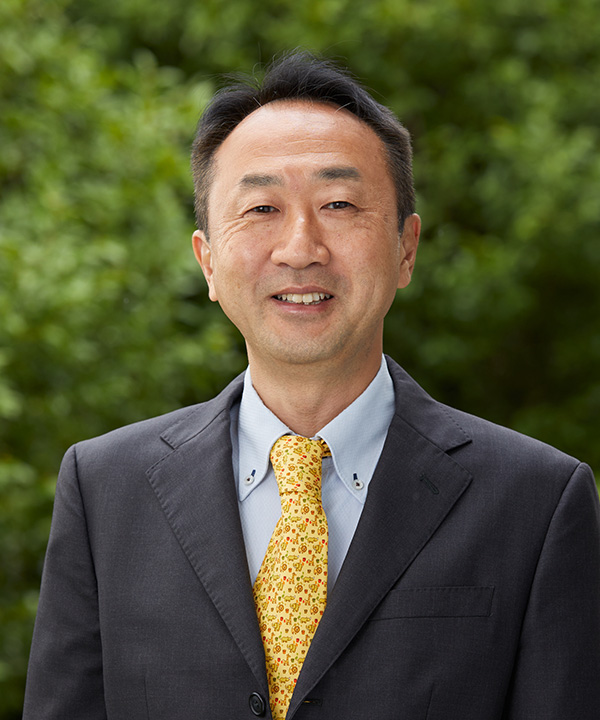About Us
Message from the Director

The scope of the Material Cycles Division’s research extends over the entire life cycle of materials, or resources, from their upstream to downstream, that is, from resource extraction to waste disposal. Resources are used for various activities for our living and provide us with various values according to our needs. Since most natural resources are finite, we aim for achieving higher quality of life with their minimum use.
We also aim for using resources in such a way that it will sustain our environment, the foundation of our existence, rather than overburdening it. The use of resources is associated with risks of generating various environmental burden. Resource mining may damage ecosystems, and disposal of waste may also pollute the environment. These potential impacts can be minimized through our 3R (reusing, reducing and recycling) efforts and proper treatment of waste. A sound material-cycle society is a society where we can obtain values through sustainable use of resources and reduce environmental burden simultaneously. We believe that our Division’s role is to clearly draw the ideal future image of the society and to propose paths and methodologies to reach there.
We will propose paths that lead to a sound-material society through realizing and integrating a decarbonized society, a society in harmony with nature, and a society where safety is ensured. These paths must also lead to achieving various social targets set by the Sustainable Development Goals (SDGs).
To that end, we will not only examine the society as a system at a macro level, but also nurture micro level field perspectives focusing on specific local situations and initiatives of various regions, municipalities, private companies, non-profit and non-governmental organizations (NPOs and NGOs), and citizens in Japan and other Asian countries. Each region or entity has different problems and constraints.
Where people have different levels of information, literacy, and values, finding a solution for each problem itself is an extremely difficult task. To date, waste treatment facilities have been regarded as a nuisance. Moreover, the Fukushima Daiichi Nuclear Power Plant accident has generated radioactively contaminated waste and soil, and a considerable discord has been found in local communities over the process of treating them.
We will be involved in such actual processes in the field to identify many important issues through seeing them with our own eyes and communicating with local people. We will generalize them through our research and apply the results to drive our society toward the desirable direction in collaboration with the people in the field. We will be actively engaged in such steady social implementation efforts.
Our researchers in the Material Cycles Division have strong abilities in examining our society as a system, developing basic hardware technologies, and properly analyzing/monitoring the state of the environment for establishing a sustainable material-cycle society. In line with NIES’s Fifth Mid-and-Long Term Plan (FY2021-FY2025), we will leverage all these strengths and devote all our efforts to achieve this goal.
Keisuke Nansai,
Director, Material Cycles Division, NIES
Source:
https://www.nies.go.jp/sosiki/cycle.html
(Original text is in Japanese.)
Overview
Our Division contributes to the sustainable use of resources and the reduction of the negative impact of waste materials to the environment
The Material Cycles Division is engaged in research to help resolve waste issues that are a negative consequence of production and consumption activities.
Our mission is to promote the transition toward a sound material-cycle society which harmonizes with the concepts of safety and security, low carbon footprint and coexistence with natural environment.
The Division also conducts environmental emergency research to help restore the environment of Fukushima prefecture promptly and to create a resilient and sustainable society in preparation for potential large-scale natural disasters.
History
| January 1938 |
|
|---|---|
| March 1974 |
|
| July 1990 |
|
| April 1992 |
|
| January 2001 |
|
| April 2001 |
|
| April 2011 |
|
| April 2021 |
|


